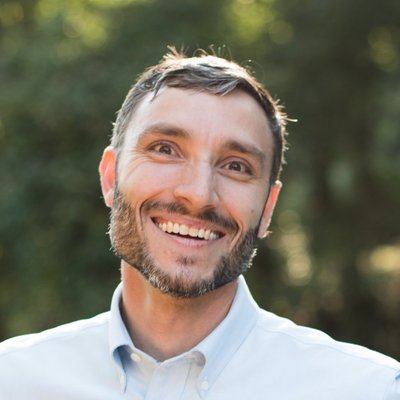 Two remarkable articles -- one on placebos, one on informed consent -- caught my attention. To set them up, a famous, perhaps apocryphal, story: A scientist tried to explain the solar system to a lay audience. When he finished, a skeptical woman told him he was wrong: the earth was flat, and rested on the back of a giant turtle. The scientist asked her what the turtle rested on. "Another turtle," she replied confidently. He then asked what that turtle was on. The woman would have none of it. "You can ask all you want, sir, but it's turtles all the way down." Faith is a funny thing. Especially in health care. Let's start with placebos...
Two remarkable articles -- one on placebos, one on informed consent -- caught my attention. To set them up, a famous, perhaps apocryphal, story: A scientist tried to explain the solar system to a lay audience. When he finished, a skeptical woman told him he was wrong: the earth was flat, and rested on the back of a giant turtle. The scientist asked her what the turtle rested on. "Another turtle," she replied confidently. He then asked what that turtle was on. The woman would have none of it. "You can ask all you want, sir, but it's turtles all the way down." Faith is a funny thing. Especially in health care. Let's start with placebos...
Latest News
Scientists Are Accidentally Helping Poachers Drive Rare Species to Extinction
 If you open Google and start typing “Chinese cave gecko”, the text will auto-populate to “Chinese cave gecko for sale” – just US$150, with delivery. This extremely rare species is just one of an increasingly large number of animals being pushed to extinction in the wild by animal trafficking. What’s shocking is that the illegal trade in Chinese cave geckoes began so soon after they were first scientifically described in the early 2000s. It’s not an isolated case; poachers are trawling scientific papers for information on the location and habits of new, rare species...
If you open Google and start typing “Chinese cave gecko”, the text will auto-populate to “Chinese cave gecko for sale” – just US$150, with delivery. This extremely rare species is just one of an increasingly large number of animals being pushed to extinction in the wild by animal trafficking. What’s shocking is that the illegal trade in Chinese cave geckoes began so soon after they were first scientifically described in the early 2000s. It’s not an isolated case; poachers are trawling scientific papers for information on the location and habits of new, rare species...
- Login to post comments
5 Myths Busted: Using Open Source in Higher Education
 Have you ever heard someone say, "It's impossible to do X with Linux"? Me too. This is the story of how I busted the myths about open source in my own head and used Linux to finish my PhD in fine arts. Many people think non-technical students can't use Linux, and they make a lot of assumptions about people who use it in their advanced degree programs. They scoff and reply with something along the lines of, "Well, of course; those people do 'computer stuff,' but in my [lofty, important, unique area] it's just not possible." Well, it is possible, and I'm proof...
Have you ever heard someone say, "It's impossible to do X with Linux"? Me too. This is the story of how I busted the myths about open source in my own head and used Linux to finish my PhD in fine arts. Many people think non-technical students can't use Linux, and they make a lot of assumptions about people who use it in their advanced degree programs. They scoff and reply with something along the lines of, "Well, of course; those people do 'computer stuff,' but in my [lofty, important, unique area] it's just not possible." Well, it is possible, and I'm proof...
- Login to post comments
How to Create an Internet-in-a-Box on a Raspberry Pi
 If you're a homeschool parent or a teacher with a limited budget, Internet-in-a-Box might be just what you've been looking for. Its hardware requirements are very modest—a Raspberry Pi 3, a 64GB microSD card, and a power supply—but it provides access to a wealth of educational resources, even to students without internet access in the most remote areas of the world. I recently had a chance to visit with developers Adam Holt and Tim Moody about the project. Adam said this wonderful initiative began with One Laptop per Child at MIT. From there it was forked in 2012 into the School Server Community Edition project, and now it is called Internet-in-a-Box. I learned of the project while attending LinuxConNA last summer in Toronto, where I first met Adam...
If you're a homeschool parent or a teacher with a limited budget, Internet-in-a-Box might be just what you've been looking for. Its hardware requirements are very modest—a Raspberry Pi 3, a 64GB microSD card, and a power supply—but it provides access to a wealth of educational resources, even to students without internet access in the most remote areas of the world. I recently had a chance to visit with developers Adam Holt and Tim Moody about the project. Adam said this wonderful initiative began with One Laptop per Child at MIT. From there it was forked in 2012 into the School Server Community Edition project, and now it is called Internet-in-a-Box. I learned of the project while attending LinuxConNA last summer in Toronto, where I first met Adam...
- Login to post comments
OSEHRA 2017: Open Source Becomes Mainstream in the Healthcare Industry
 One of the most exciting things about the OSEHRA 2017 Open Source Summit was to see so many leading edge open source health IT solutions, and to hear reports of the major strides they are making around the world. Our very own Editor-in-Chief, Roger A. Maduro gave a presentation on the state of open health IT. The room was absolutely packed, with standing room only. Maduro started his presentation by pointing out that during the recent HIMSS17 conference in Orlando, Florida, more than half of of the 300 sessions of the conference were based on open source solutions such as FHIR, Blockchain, Interoperability and the open/modular IT strategy being followed by Medicaid.
One of the most exciting things about the OSEHRA 2017 Open Source Summit was to see so many leading edge open source health IT solutions, and to hear reports of the major strides they are making around the world. Our very own Editor-in-Chief, Roger A. Maduro gave a presentation on the state of open health IT. The room was absolutely packed, with standing room only. Maduro started his presentation by pointing out that during the recent HIMSS17 conference in Orlando, Florida, more than half of of the 300 sessions of the conference were based on open source solutions such as FHIR, Blockchain, Interoperability and the open/modular IT strategy being followed by Medicaid.
- Login to post comments
What We (Think We) Know about Meritocracies
 "Meritocracy," writes Christopher Hayes in his 2012 book Twilight of the Elites, "represents a rare point of consensus in our increasingly polarized politics. It undergirds our debates, but is never itself the subject of them, because belief in it is so widely shared." Meritocratic thinking, in other words, is prevalent today; thinking rigorously about meritocracy, however, is much more rare. That kind of unspoken consensus—however tenuous and fraught in practice—makes tracing and tracking something called "meritocracy" all the more important. And indeed, interest in meritocracy as an explicit object of analysis and debate is intensifying, particularly in discussions examining open-style organizational designs and leadership practices...
"Meritocracy," writes Christopher Hayes in his 2012 book Twilight of the Elites, "represents a rare point of consensus in our increasingly polarized politics. It undergirds our debates, but is never itself the subject of them, because belief in it is so widely shared." Meritocratic thinking, in other words, is prevalent today; thinking rigorously about meritocracy, however, is much more rare. That kind of unspoken consensus—however tenuous and fraught in practice—makes tracing and tracking something called "meritocracy" all the more important. And indeed, interest in meritocracy as an explicit object of analysis and debate is intensifying, particularly in discussions examining open-style organizational designs and leadership practices...
- Login to post comments
In Healthcare, It's Placebos [Almost] All the Way Down
- Login to post comments
OSEHRA 2017: Microsoft, OpenStack, IBM Support VistA in the Cloud
 This year’s OSEHRA 2017 Open Source Summit proved to be another major milestone in the transition from locked-in vendor-controlled health information technology to an open solutions approach. One of the major news stories at the summit was the decision by Microsoft to join OSEHRA and collaborate with the Open Health community. Another major presentation was that of Martin Rice, Director of the Division of State System for the Centers for Medicare and Medicaid Services (CMS) and Clyneice Chaney, Principal Systems Engineer. In their presentation (video* and PowerPoint*), Rice and Chaney described how CMS is transitioning to an open/modular approach to State Medicaid IT systems.
This year’s OSEHRA 2017 Open Source Summit proved to be another major milestone in the transition from locked-in vendor-controlled health information technology to an open solutions approach. One of the major news stories at the summit was the decision by Microsoft to join OSEHRA and collaborate with the Open Health community. Another major presentation was that of Martin Rice, Director of the Division of State System for the Centers for Medicare and Medicaid Services (CMS) and Clyneice Chaney, Principal Systems Engineer. In their presentation (video* and PowerPoint*), Rice and Chaney described how CMS is transitioning to an open/modular approach to State Medicaid IT systems.
- Login to post comments
Addressing Open Source's Free Rider Problem
 Nadia Eghbal, in her major report on the state of our digital infrastructure, and Jonathan Lister, in his response describing our digital ecosystem, both point to a tragedy of the commons in open source software. While some projects are sustainable, many still struggle with "a free rider problem." As Nadia puts it: "Resources are offered for free, and everybody (whether individual developer or large software company) uses them, so nobody is incentivized to contribute back, figuring that somebody else will step in"...
Nadia Eghbal, in her major report on the state of our digital infrastructure, and Jonathan Lister, in his response describing our digital ecosystem, both point to a tragedy of the commons in open source software. While some projects are sustainable, many still struggle with "a free rider problem." As Nadia puts it: "Resources are offered for free, and everybody (whether individual developer or large software company) uses them, so nobody is incentivized to contribute back, figuring that somebody else will step in"...
- Login to post comments
An Introduction to Libral, a Systems Management Library for Linux
 Linux, in keeping with Unix traditions, doesn't have a comprehensive systems management API. Instead, management is done through a variety of special-purpose tools and APIs, all with their own conventions and idiosyncrasies. That makes scripting even simple systems-management tasks difficult and brittle. For example, changing the login shell of the "app" user is done by running usermod -s /sbin/nologin app. This works great until it is attempted on a system that does not have an app user. To fix the ensuing failure, the enterprising script writer might now resort to...
Linux, in keeping with Unix traditions, doesn't have a comprehensive systems management API. Instead, management is done through a variety of special-purpose tools and APIs, all with their own conventions and idiosyncrasies. That makes scripting even simple systems-management tasks difficult and brittle. For example, changing the login shell of the "app" user is done by running usermod -s /sbin/nologin app. This works great until it is attempted on a system that does not have an app user. To fix the ensuing failure, the enterprising script writer might now resort to...
- Login to post comments
Law for All: Free Law Project’s Radical Approach to Legal Transparency
 What does open access look like for the law? Through free access to primary legal sources, the Free Law Project provides an important service to advocates, journalists, researchers, and the public. Joining with an international movement for Free Access to Law, the US-based organization helps people know their rights in an increasingly uncertain and rapidly changing legal era. The Free Law Project is an umbrella organization for a variety of projects, including Court Listener for millions of pieces of legal data, the RECAP project (begun by Aaron Swartz in 2009) to freely open the PACER archive of legal data, a complete repository of Supreme Court Data, a repository of judicial opinions and seals, and a Free Law Reporters Database...
What does open access look like for the law? Through free access to primary legal sources, the Free Law Project provides an important service to advocates, journalists, researchers, and the public. Joining with an international movement for Free Access to Law, the US-based organization helps people know their rights in an increasingly uncertain and rapidly changing legal era. The Free Law Project is an umbrella organization for a variety of projects, including Court Listener for millions of pieces of legal data, the RECAP project (begun by Aaron Swartz in 2009) to freely open the PACER archive of legal data, a complete repository of Supreme Court Data, a repository of judicial opinions and seals, and a Free Law Reporters Database...
- Login to post comments